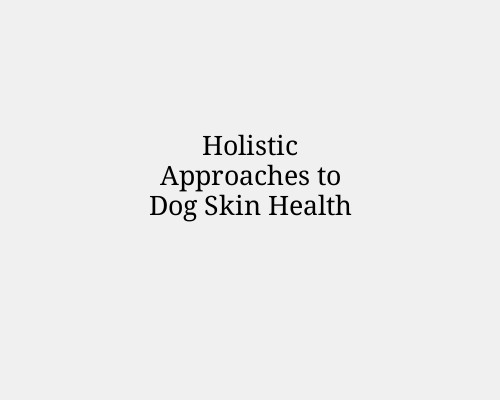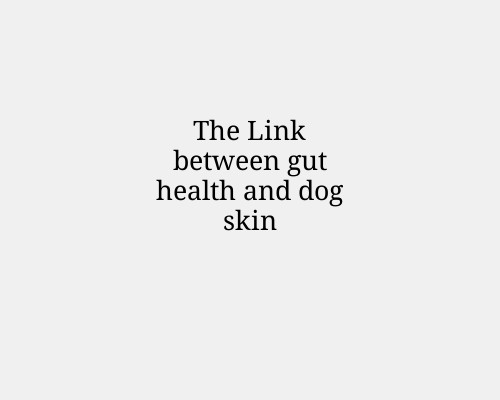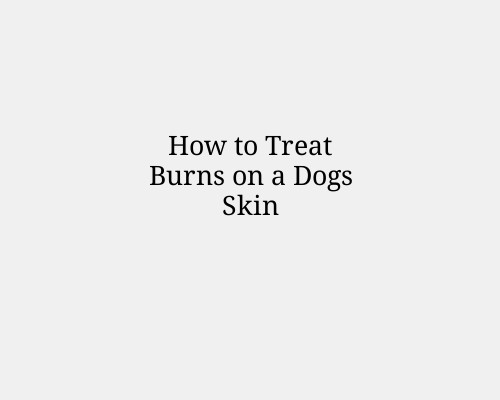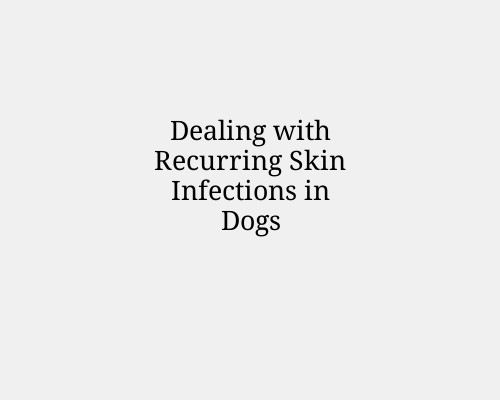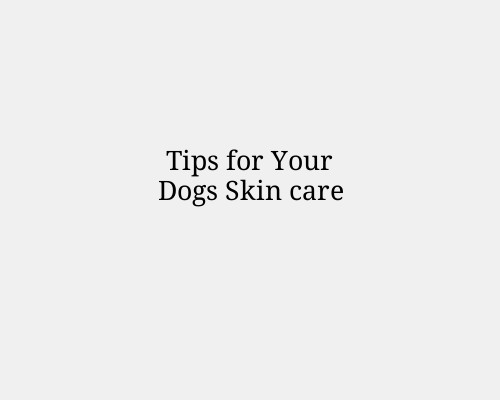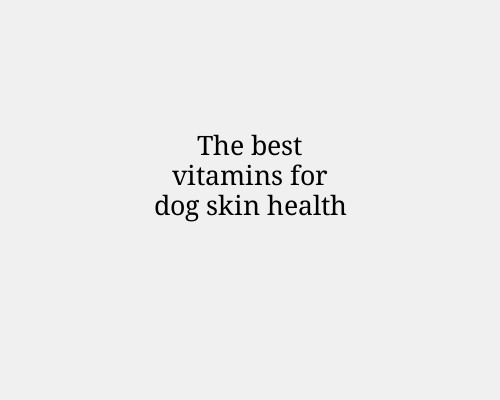Holistic Approaches to Dog Skin Health
Holistic Approaches to Dog Skin Health
Dog skin health is a vital aspect of their overall well-being, and skin issues are among the most common concerns pet owners face. While conventional veterinary treatments are effective, many owners seek holistic solutions to complement or replace these treatments. Holistic approaches focus on treating the root causes of skin problems, rather than just the symptoms, by addressing diet, environment, emotional stress, and natural remedies. Below is an overview of various holistic methods that promote optimal skin health in dogs.
Dietary Improvements
A well-balanced diet is one of the most impactful ways to support skin health. Food sensitivities or nutritional deficiencies are often at the root of chronic skin issues.
Key Nutritional Elements:
Omega-3 Fatty Acids: Found in fish oil, krill oil, and flaxseed oil, omega- 3s reduce inflammation and promote a healthy, shiny coat.
Probiotics: Supporting gut health can help balance the immune system, reducing allergic reactions.
Whole Foods: Incorporating fresh, whole foods such as lean proteins, fruits, and vegetables can improve skin quality and reduce irritation.
Avoiding Allergens: Identifying and removing common allergens like corn, soy, or artificial additives can alleviate many skin issues.
Herbal treatments have long been used to address skin conditions in dogs. These remedies are typically gentle and safe when used appropriately.
Common Herbal Treatments:
Aloe Vera: This soothing gel helps reduce itching and inflammation.
Calendula: Known for its antimicrobial and wound-healing properties, calendula can be applied as a wash or cream.
Chamomile: Chamomile tea, when cooled, can be used as a rinse to soothe irritated skin.
Coconut Oil: This oil can be applied directly to dry patches or fed as a dietary supplement to promote healthy skin and reduce itching.
Environmental Modifications
Environmental factors can trigger or exacerbate skin issues. Minimizing irritants and toxins in your dog’s surroundings can lead to significant improvements.
Steps to Improve Environment:
Natural Cleaning Products: Switching to pet-safe, non-toxic cleaners reduces exposure to skin irritants.
Air Purification: Using air purifiers and regularly cleaning bedding helps minimize allergens such as dust mites and pollen.
Hypoallergenic Shampoos: Choose shampoos free of harsh chemicals and fragrances. Look for those containing oatmeal or aloe for gentle cleansing.
Emotional stress can negatively impact the immune system, leading to skin flare- ups. Addressing your dog’s mental health is a vital part of holistic care.
Stress-Reducing Techniques:
Exercise and Play: Regular physical activity helps regulate hormones and reduces anxiety.
Massage Therapy: Gentle massages improve circulation and promote relaxation.
Calming Supplements: Natural supplements such as valerian root or L- theanine can help soothe nervous dogs.
Aromatherapy: Lavender essential oil (diluted) can be used to calm anxious dogs and promote healing.
Acupuncture and Acupressure
Acupuncture and acupressure are rooted in Traditional Chinese Medicine (TCM) and have been used for centuries to promote overall health and balance in dogs.
Benefits for Skin Health:
Immune Support: Acupuncture helps balance the immune system, reducing allergic reactions.
Inflammation Control: These therapies improve blood circulation and reduce swelling, which can help resolve skin conditions.
Hormonal Regulation: Balancing hormones can prevent skin problems caused by endocrine disorders.
Homeopathy involves using highly diluted substances to trigger the body’s natural healing responses. Although results can vary, many pet owners find success with homeopathic treatments.
Popular Homeopathic Remedies:
Sulphur: Commonly used for itchy, flaky, or greasy skin conditions.
Arsenicum Album: Helps with hot spots and dry, scaly skin.
Graphites: Beneficial for oozing or cracked skin lesions.
Always consult a homeopathic veterinarian for proper dosing and remedy selection.
Regular Grooming and Skin Checks
Maintaining good hygiene is essential for skin health. Regular grooming can help prevent skin issues and allow you to catch any problems early.
Grooming Tips:
Brush Frequently: Regular brushing removes dead hair and debris, distributes natural oils, and prevents matting.
Bathe Wisely: Bathing too frequently can strip natural oils, while infrequent baths can allow dirt buildup. Aim for balance based on your dog’s coat type.
Check for Irritations: Look for signs of redness, bumps, or excessive scratching. Catching issues early can prevent more serious problems.
Dry skin is often exacerbated by dehydration or low humidity levels, especially during winter.
Hydration Solutions:
Encourage Water Intake: Ensure fresh, clean water is always available. Adding a splash of bone broth to water can entice picky drinkers.
Humidifiers: Using a humidifier can add moisture to the air, reducing skin dryness.
Detoxification Support
Holistic veterinarians may recommend gentle detoxification to support skin health by removing toxins from the body.
Detox Strategies:
Milk Thistle: Supports liver function, helping the body process and eliminate toxins.
Dandelion Root: Promotes kidney health and gentle detoxification.
Epsom Salt Baths: A warm Epsom salt soak can draw out toxins and soothe itchy skin.
Consulting a Holistic Veterinarian
For chronic or severe skin conditions, it’s best to work with a holistic veterinarian. They can create a customized plan that may include dietary changes, supplements, natural remedies, and stress management.
Holistic approaches to dog skin health focus on addressing the root causes of skin issues through diet, environment, stress reduction, and natural remedies. By taking a comprehensive approach, pet owners can help their dogs achieve healthier, itch-free skin without solely relying on conventional treatments.
Always consult with a veterinarian before making significant changes to your dog’s care plan to ensure safety and efficacy.

